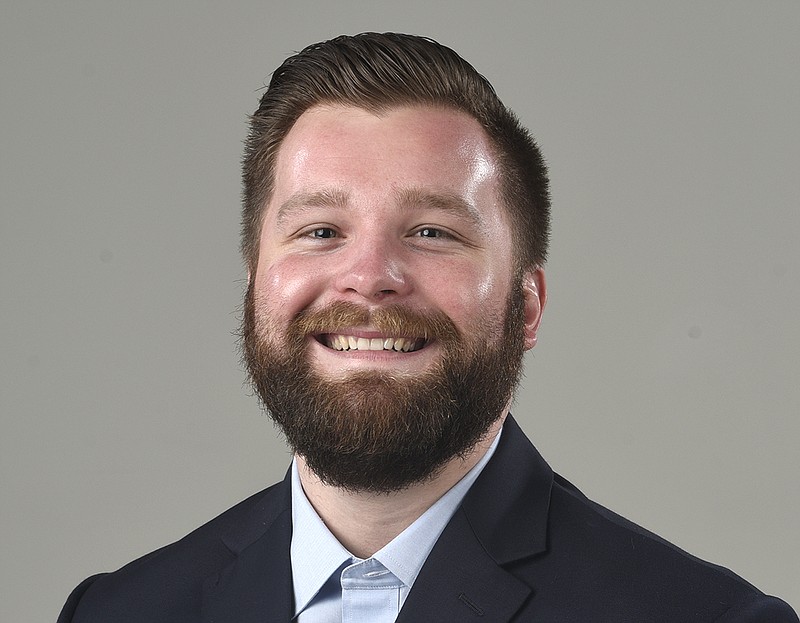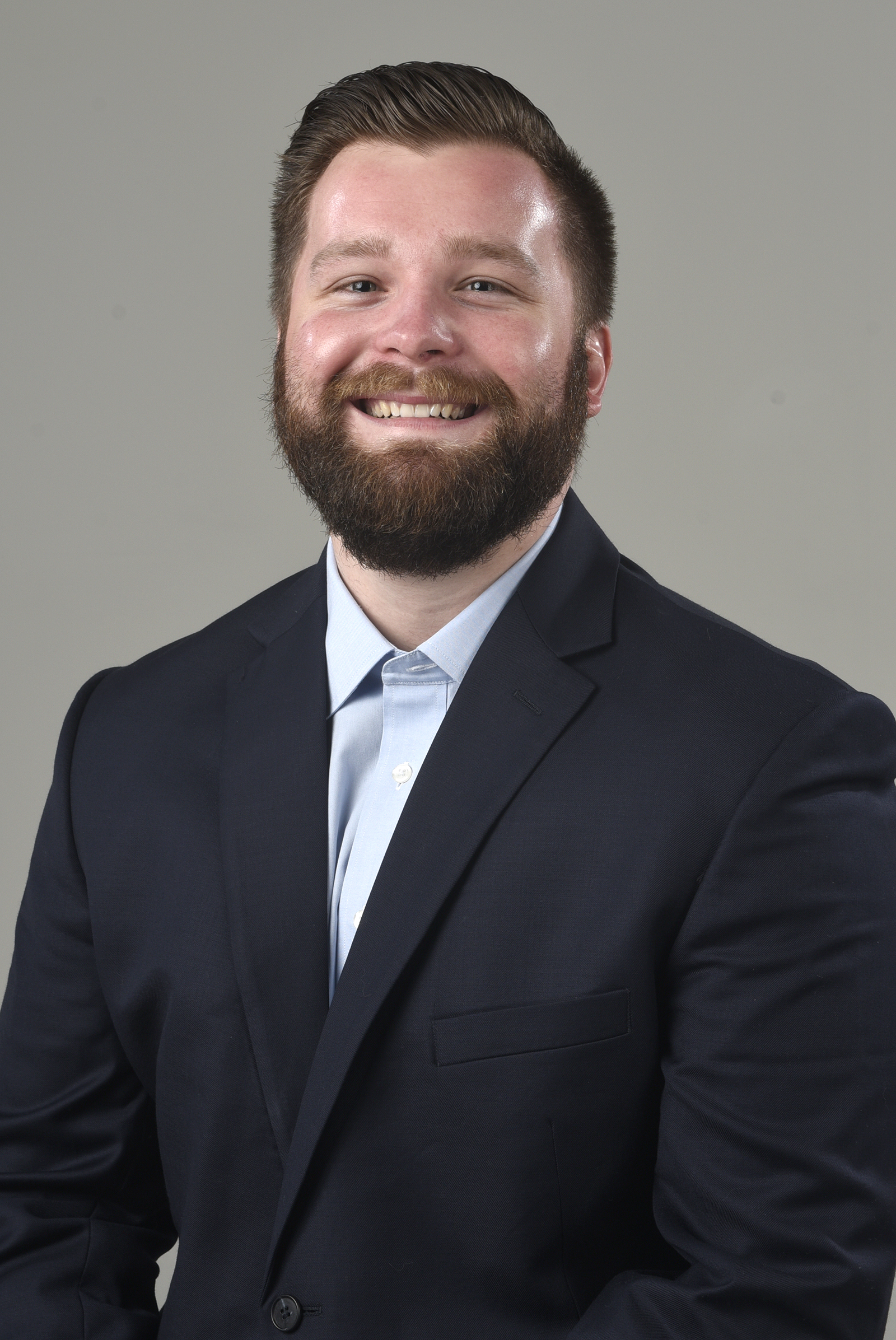Two young brothers from Chattanooga said they think they have a solution to one of the biggest public health issues in the country today - the opioid crisis.
EirSystems co-founders Tyler Seaberg, 22, and Ryan Seaberg, 24, say doctors and pharmacists can more accurately track the movement of prescription drugs, including opioid painkillers, using blockchain, the record-keeping technology made popular in recent years by the digital currency Bitcoin.
The brothers founded EirSystems in 2018, and with a team of seven employees, plan to launch their e-prescription and drug monitoring service - P.A.G.R. Prescriptions - that uses blockchain technology in areas of Ohio and Tennessee by May. Research shows many people addicted to opioids started with a legal prescription from their provider.
Almost three-fourths of the state's 1,776 drug overdose deaths in 2017 were associated with opioids, a class of drugs that's addictive and can cause serious or fatal side effects, particularly when taken in high doses with other substances. Of those deaths, 644 were associated with prescription opioids, such as hydrocodone, oxycodone and morphine, according to data from the Tennessee Department of Health.
Citing studies that only 46 percent of physicians use e-prescribing systems, which allows them to write and fill prescriptions electronically, Tyler Seaberg said the new technology will provide an audited ledger of transactions that is tamper-proof, time-stamped and shared across a network of computers so that doctors who are registered in different states and offices can also see a patient's prescription history.
"Every time a doctor prescribes a prescription to the patient and the pharmacy fills it, that transaction is stamped on the ledger so that way any registered party, whether it's the Drug Enforcement Administration, pharmacist or doctor can now view that transaction and see what pharmacy filled it, what patient got it and what doctor prescribed it," Seaberg said.
If a doctor tries to change the prescription, or the amount provided to the patient, then the system will show each change, so it makes it harder for any physician or pharmacist to practice maliciously, according to Seaberg.
"With our blockchain technology, you can't go on there and tamper with it since it is time-stamped. There will be a note saying the changes that you made," he said.
Blockchain also provides a level of security that other systems can't. The Chattanooga-based medical startup states that with encryption and no centralized point of attack, all records will be secure from cyber attacks, fraud and human error will be eliminated and access to the system will require a two-factor authorization.
Seaberg said he originally learned about blockchain technology three years ago when he returned home for the summer from Macalester College in St. Paul, Minnesota. His friend Chris Zack introduced him to Bitcoin, and Seaberg began thinking how he could use the technology to start his own business. Zack is now the Chief Compliance Officer at EirSystems.
It wasn't until Seaberg's brother, a professional football player in Europe, was injured and had surgery that they began thinking about how blockchain technology could be used in the health care space.
"My brother called me and said, 'Hey, I just had surgery for my arm, and I got a 30-day supply of OxyContin for my surgery. There has to be a better way that we are tracking these prescriptions. Personally, I don't need 30 OxyContin after my surgery,'" he recalled.
Nationally, the Centers for Disease Control and Prevention reports that from 1999 to 2017, almost 218,000 people died in the United States from overdoses related to prescription opioids. Overdose deaths involving prescription opioids were five times higher in 2017 than in 1999.
The sons of Dr. David Seaberg, an emergency room physician and the former dean of the University of Tennessee at Chattanooga's College of Medicine, Tyler said they connected with physicians in Tennessee and Ohio, where their father now works.
While some doctors or pharmacists might be weary of the oversight the P.A.G.R. system provides, Tyler and Zack said most physicians they've met expressed more concern about not having confidence in the current records they get from other hospitals and doctors.
"What we've really found is that doctors we have talked to have a lot of concern that when they are prescribing now - even when they've checked with other systems in different states or areas - that they don't feel confident that's necessarily accurate or that they are getting the whole picture," Zack said.
"When doctors feel more confident that they have the information available to make their call, they feel more confident to prescribe pain medication to those who need it," he added.
Tyler said they will first launch their system at hospitals in Ohio and in smaller towns in northeast Tennessee.
In Tennessee, the goal is to implement P.A.G.R. in rural areas where there may be only one primary care facility or a few pharmacies, so that it can keep records of an entire city's prescription history and compare it to previous years. Cities could include Johnson City, Elizabethton, Cookeville or others.
In Tennessee in 2017, the latest year information is provided, there were 1,268 opioid overdose deaths, 15,001 non-fatal overdose outpatient visits and 6.8 million painkiller prescriptions. There were 60 opioid overdose deaths in the Hamilton County region that year.
Drug overdose deaths have continued to increase since 2013 across the state, but the number of patients filling opioid prescriptions for pain has fallen about 28 percent from its peak in 2014, according to Tennessee's Annual Overdose Report. In 2017 to 2018, the rate of opioid prescriptions filled for pain fell in 94 of Tennessee's 95 counties, but Tennessee is still ranked as having the third-highest opioid prescribing rate in the country, according to 2017 data.
Once EirSystems receives its "Electronic Prescriptions for Controlled Substances," or EPCS, certification, P.A.G.R. Prescriptions will be the only blockchain-oriented e-prescribing system in the world, Zack said.
The technology should only help physicians who are acting in good faith get more accurate information about their patients, according to Seaberg.
"It's a way of checks and balances, so that the doctors or pharmacists who are running a 'pill mill' do get noticed," Seaberg said. "But the ones who are doing their best every day to provide a medical service, they are not going to get penalized at all."
Contact staff writer Allison Shirk Collins at ashirk@timesfreepress.com, @AllisonSCollins or 423-757-6651.


